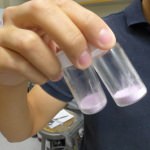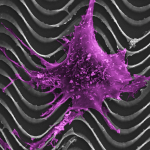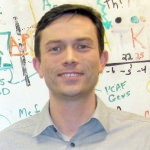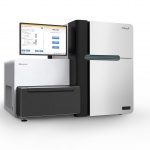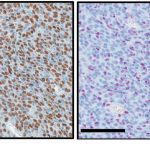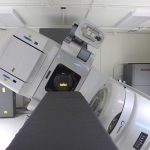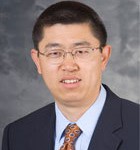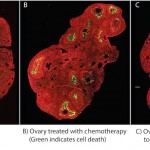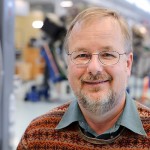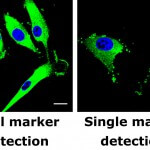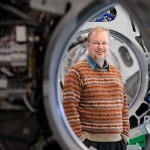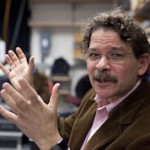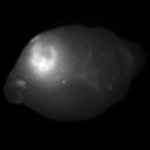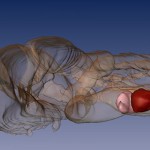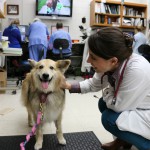Tag Cancer
Tiny 3-D models may yield big insights into ovarian cancer
With a unique approach that draws on 3-D printing technologies, a team of UW–Madison researchers is developing new tools for understanding how ovarian cancer develops in women.
UW technology key to growth as firm stays in Madison long after sale
The explosion in next-generation sequencing has opened windows throughout medicine and biology.
Mackie honored as his latest startup shifts toward high gear
Thomas “Rock” Mackie, a scientist, entrepreneur and educator, has been honored with the 2015 Excellence in Entrepreneurial Education award for career-long assistance to students and faculty interested in starting businesses.
Compound doubles up on cancer detection
Tagging a pair of markers found almost exclusively on a common brain cancer yields a cancer signal that is both more obvious and more specific to cancer, according to a study published last week in the Proceedings of the National Academy of Sciences (PNAS).
Innovative cancer treatment machine: Still made in Wisconsin
Innovator-entrepreneur Thomas “Rock” Mackie’s TomoTherapy, launched in 1997, remains one of the universities’ most successful spinoff companies.
Dietary intervention primes triple-negative breast cancer for targeted therapy
A diet that starves triple-negative breast cancer cells of an essential nutrient primes the cancer cells to be more easily killed by a targeted antibody treatment, UW Carbone Cancer Center scientists report in a recent publication.
Petri dish tumor test could personalize drug therapy for cancer patients
In a highly successful, first-of-its-kind endeavor, a multidisciplinary team of University of Wisconsin–Madison researchers has created a "tumor in a dish:" an ex vivo microenvironment that can accurately anticipate a multiple myeloma patient's response to a drug.
Study redefines role of estrogen in cervical cancer
Scientists have prior evidence that the hormone estrogen is a major driver in the growth of cervical cancer, but a new study examining genetic profiles of 128 clinical cases reached a surprising conclusion: Estrogen receptors all but vanish in cervical cancer tumors.
Navigating multiple myeloma with ‘Google Maps’ for the cancer genome
In some ways, studying the genetics of cancer has been like examining the individual tiles on a mosaic, says David C. Schwartz, a professor of genetics and chemistry at the University of Wisconsin–Madison. To make his point, he brings his face close to the table where he sits - his mosaic for the purpose of illustration - and describes the details of each imaginary tile.
Ready, aim, fire! Cancer-targeting mechanism underlies promising UW–Madison spinoff
For all their lethality, cancer cells don't look much different from healthy cells, a simple fact that causes endless pain and suffering. Finding cancer cells that have spread and threaten to grow into metastatic tumors is often a life-and-death matter.
UW-Madison cancer research showcased in Wisconsin Public Television series
Next week, cancer research by University of Wisconsin–Madison scientists will be featured in a series of programs airing on Wisconsin Public Television (WPT).
Study reveals possible biological trigger for canine bone cancer
Researchers at the University of Wisconsin–Madison School of Veterinary Medicine (SVM) have identified the biological mechanism that may give some cancer cells the ability to form tumors in dogs. The recent study uncovered an association between the increased expression of a particular gene in tumor cells and more aggressive behavior in a form of canine bone cancer. It may also have implications for human cancers by detailing a new pathway for tumor formation.
UW to test ‘breakthrough’ pediatric leukemia treatment
A promising method of immunotherapy to treat children with relapsed acute lymphocytic leukemia (ALL) is opening at the University of Wisconsin Carbone Cancer Center and American Family Children's Hospital. The trial is open to relapsed/refractory pediatric ALL patients who have limited treatment options.

